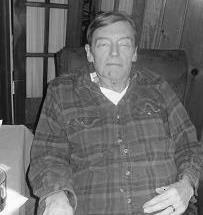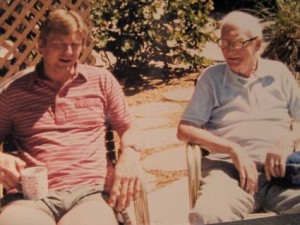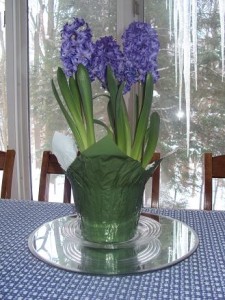I love living in Michigan, but there were some big losses when we moved from our old stomping grounds in Illinois. We grieved over leaving the church we’d attended for 21 years, The Orchard in Arlington Heights. Precious friendships were left behind, as well as a talented pastoral staff.
The head pastor, Colin Smith, had gone above and beyond in taking care of Nate and me. I remember back to one of his early sermons as our new pastor over a decade ago. When he preached that day, his words challenged me by raising new questions in my mind, so I jotted them down on the church bulletin, hoping to ponder them later.
Eventually I transferred my questions to the computer, all 57 of them, many with two or three parts. The problem came in figuring out how to get the answers. Feeling frustrated, I decided to send the list to Pastor Colin. If nothing else, it would prove to him he’d preached a great sermon that had his congregation thinking.
The next day I told Nate what I’d done. “Remember all those questions I scribbled down during the service yesterday?” He did. “I typed them up and sent the list to Colin.”
“How many questions?” he asked, raising his eyebrows.
“Fifty-seven.”
“Fifty-seven questions? Were you expecting he would answer them all?”
“Not really.” I said. “Was it bad I sent them?”
Wanting to be kind, he said, “Well, I’m sure he’ll respond to you.” (Lawyers would call that a “non-answer.”)
Four days before Nate died, all of us sensed him barreling toward death at lightning speed. Wanting to make him comfortable, we continually questioned him, easily topping 57. “Can I get you anything? Would you like a drink of water? Are you cold? Can I warm up your coffee?”
Even the Hospice nurses came with an arsenal of queries. “How is your pain today? Where does it hurt most? Are your meds working?”
That evening I bent down in front of his lazy-boy hoping to make the end of his stressful day better. “Can I get you some juice? Would you like another ice pack for your back? Should I take your shoes off?”
He wasn’t talking much by that time, and none of us left enough space between questions to give him room to think, much less respond. Finally, he let us know about it. He raised his hand in front of me like a stop-sign and with great effort, slowly and deliberately said, “No… more… questions,” and then let his hand fall into his lap.
I was stunned. It hadn’t occurred to me every sentence I’d spoken to him that day had been a question. In my efforts to ease his misery, I’d only added to it.
From then on, all of us tried to catch ourselves when we started ticking off another list of inquiries. By the next day, not knowing he had only three days left, Nate struggled valiantly against pain. Along with increased meds came decreased speech. From his vantage point, that might have been a relief, because once he couldn’t answer, we stopped asking.
Generally it’s good to ask questions, but like all good things taken to an extreme, it can become damaging. I suppose a good question to ask ourselves would be, “Is my question necessary?” (Most of what we wanted to do for Nate could have been done without asking.)
After Pastor Colin received my 57 questions, he did respond, just as Nate said he would. “I read through all of them,” he said over the phone, unable to see my red face. “I believe asking sincere questions of God, as you have, can be an act of worship.”
Within that encouraging comment was the key: to whom are we bringing our questions? They ought to be taken to the person most qualified to answer. And if we’re asking questions only God can answer, the good news is he’s always eager to be asked. No question about it.
“Ask, and it will be given to you; seek, and you will find; knock, and it will be opened to you. For everyone who asks receives, and he who seeks finds, and to him who knocks it will be opened.” (Matthew 7:7-8)





